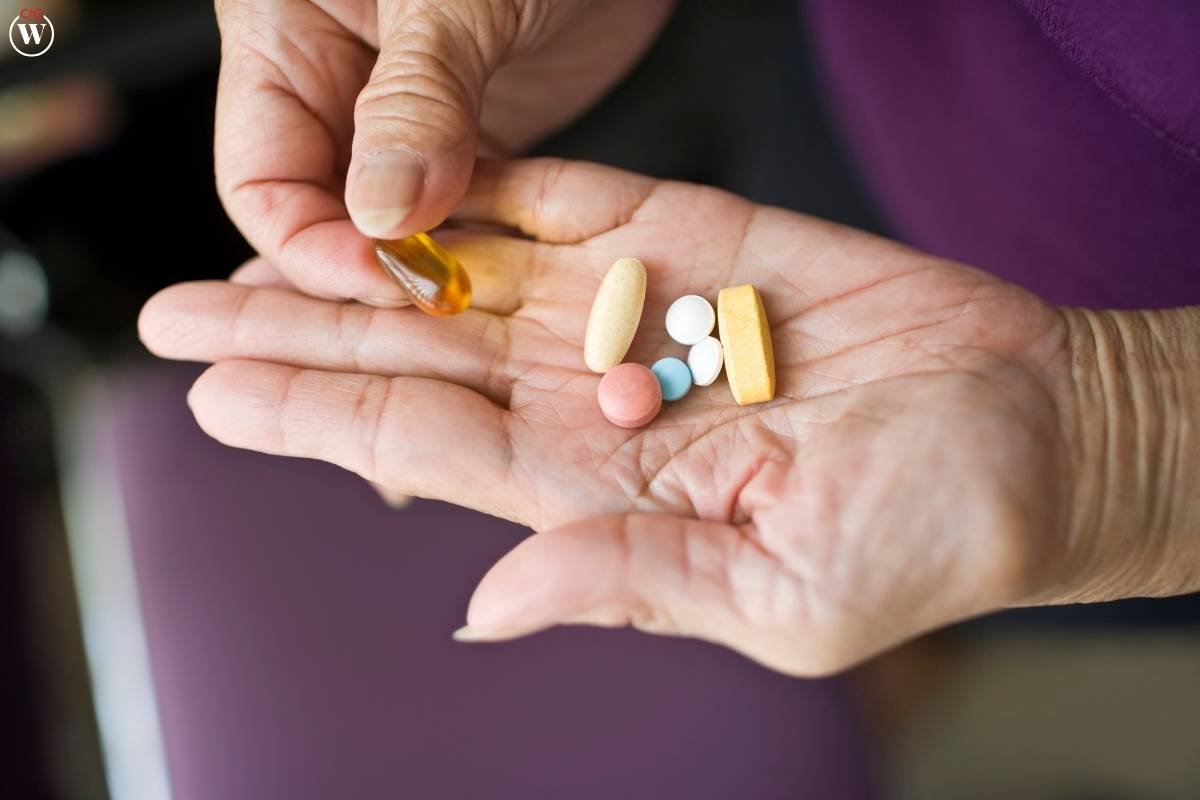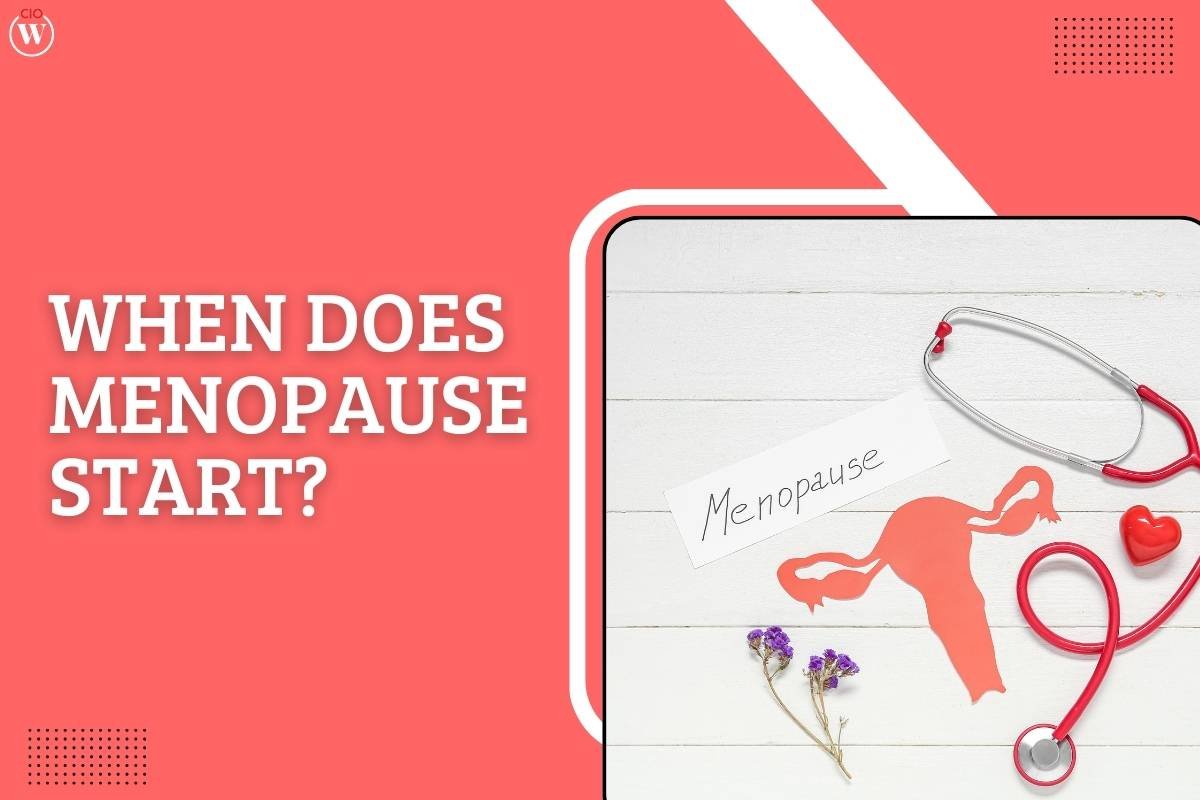Menopause is a natural biological process that marks the end of a woman’s reproductive years. It typically occurs in the late 40s to early 50s, but the exact timing can vary greatly from one individual to another. In this article, we delve into the question, “When does menopause start?” to shed light on this significant phase in a woman’s life.
Defining Menopause
Menopause refers to the cessation of menstrual periods for at least 12 consecutive months due to the natural decline in reproductive hormones, particularly estrogen and progesterone. It is a normal part of aging for women and signifies the end of their ability to conceive naturally.
When Does Menopause Start?
The question of when does menopause start is a complex one, influenced by various factors such as genetics, lifestyle, and overall health. On average, menopause typically begins between the ages of 45 and 55. However, some women may experience it earlier or later.
- Early Menopause: When menopause occurs before the age of 45, it is considered early or premature menopause. There are several reasons why a woman might experience early menopause, including genetic factors, autoimmune diseases, certain medical treatments like chemotherapy or radiation therapy, and surgical removal of the ovaries (oophorectomy).
- Late Menopause: Conversely, menopause that occurs after the age of 55 is termed late menopause. Women who experience late menopause may have a decreased risk of certain health conditions associated with menopause, such as osteoporosis and cardiovascular disease.
- Perimenopause: Before reaching menopause, women go through a transitional phase known as perimenopause, which typically begins in the late 30s to early 40s. During perimenopause, hormone levels fluctuate, leading to irregular menstrual cycles and various symptoms such as hot flashes, night sweats, mood swings, and sleep disturbances.

Understanding the Menopausal Transition
The menopausal transition can be a challenging time for many women, both physically and emotionally. The fluctuating hormone levels can cause a wide range of symptoms, which vary in severity from one woman to another. It is essential to recognize these symptoms and seek appropriate medical guidance and support for answering the question, ‘when does menopause start?’
Factors Influencing the Timing of Menopause
Several factors can influence when menopause starts for an individual. Genetics play a significant role, as women tend to experience menopause around the same age as their mothers and sisters. Ethnicity can also impact the timing of menopause, with some groups experiencing it earlier or later than others.
Lifestyle factors such as diet, exercise, smoking, and alcohol consumption can also influence the onset of menopause. Women who lead a healthy lifestyle may delay menopause, while those with unhealthy habits may experience it earlier.
Medical conditions such as polycystic ovary syndrome (PCOS), thyroid disorders, and autoimmune diseases can affect hormone levels and contribute to early menopause. Additionally, certain medical treatments such as chemotherapy and radiation therapy can induce menopause in younger women.
Signs and Symptoms of Menopause
Menopause is associated with a variety of physical and emotional symptoms, which can significantly impact a woman’s quality of life. Common symptoms include:

- Hot flashes: Sudden feelings of heat, often accompanied by flushing and sweating.
- Night sweats: Episodes of intense sweating during sleep, which can disrupt sleep patterns.
- Irregular menstrual cycles: Changes in the frequency and duration of menstrual periods.
- Mood swings: Fluctuations in mood, including irritability, anxiety, and depression.
- Sleep disturbances: Difficulty falling asleep or staying asleep, leading to fatigue and daytime drowsiness.
- Vaginal dryness: Thinning and drying of the vaginal tissues, which can cause discomfort during intercourse.
- Loss of libido: Decreased interest in sexual activity due to hormonal changes.
Managing Menopausal Symptoms
While menopause is a natural process, the symptoms associated with it can be challenging to manage. Fortunately, there are several treatment options available to help alleviate symptoms and improve quality of life. These include:
- Hormone replacement therapy (HRT): HRT involves taking estrogen and, in some cases, progesterone to replace the hormones that decline during menopause. It can help relieve symptoms such as hot flashes, night sweats, and vaginal dryness. However, HRT is not suitable for everyone and may carry certain risks, so it’s essential to discuss the potential benefits and risks with a healthcare provider.
- Lifestyle modifications: Making healthy lifestyle choices can help reduce the severity of menopausal symptoms. This includes maintaining a balanced diet, staying physically active, managing stress, getting enough sleep, and avoiding smoking and excessive alcohol consumption.
- Alternative therapies: Some women find relief from menopausal symptoms through alternative therapies such as acupuncture, yoga, meditation, and herbal supplements. While more research is needed to confirm the effectiveness of these approaches, they may offer a safe and natural option for symptom management.
- Medications: In addition to HRT, certain medications such as antidepressants and anti-seizure drugs may help alleviate specific menopausal symptoms like mood swings and hot flashes.

Conclusion:
When does menopause start is an important question because menopause is a significant milestone in a woman’s life, marking the end of her reproductive years. The timing of menopause can vary greatly from one individual to another, influenced by factors such as genetics, lifestyle, and overall health. Understanding when menopause starts and being aware of the signs and symptoms can help women navigate this transition with greater ease. By seeking appropriate medical guidance and support, women can effectively manage menopausal symptoms and maintain their overall health and well-being.









